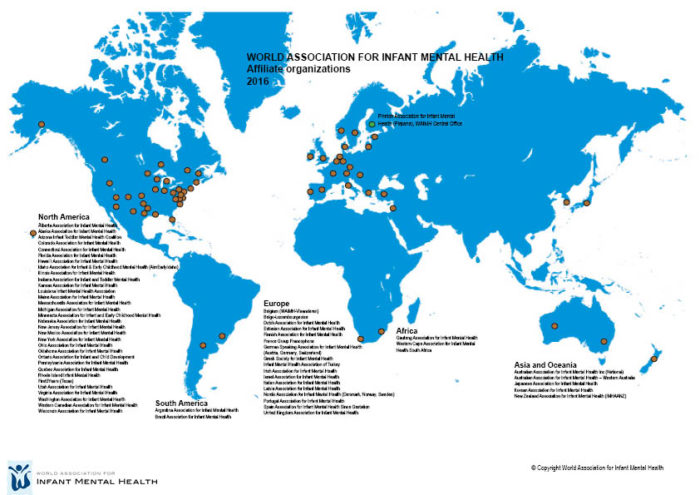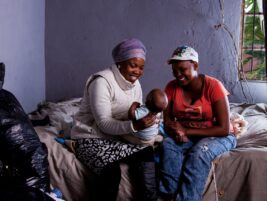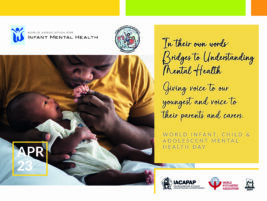The early years provide a unique opportunity to intervene. Investment in infant and toddler social and emotional health not only benefits the physical and psychological health of our young but also has long lasting benefits for the future of society and the economy (Dube, Feletti, Dong, Giles, & Anda, 2003). Extensive evidence based research, especially neuro-scientific studies stress the critical importance of this developmental period, however its integration into clinical practice within the Irish Health Services has to date, been a slow and difficult process (Centre for Effective Services Report, 2010).
Current legislation and strategy documents (Vision for Change, 2006; The Agenda for Children’s Services, 2007) underpinning service delivery, all advocate an early intervention and prevention approach for the promotion of childhood mental health. However, policy documents lack the necessary specificity regarding what precisely this early intervention prevention approach should constitute of, or the model of service delivery to achieve this objective. Furthermore, policies directing clinical practice tend to have a reactive focus following prevalence of pathology or crisis and targeted preventions for infants and toddler mental health have become less visible in service delivery or in budget allocations.
Policies too, struggle to incorporate research and neuro-scientific studies into practical strategies, often policy makers may not having the appropriate clinical backgrounds to succinctly interpret how research translates into practical applications ( Nelson & Mann, 2011) at primary secondary and tertiary levels of service provisions.
Similarly, indicators of infant and toddler risk and problem presentations are often not recognised, raising questions regarding training and workforce capacity for all disciplines in frontline clinical service.
It is from this context and the absence of early childhood mental health policies globally ( WHO 2005; Shatkin & Belfer, 2004) that a Working Group comprising Affiliates Corner of Statutory, Voluntary and the Irish Association of Infant Mental Health have now joined together to advance a policy for infant and toddler mental health. It is a first step towards a collaborative working relationship with Government Ministers responsible for the national policies and strategies which underpin health, mental health and children services.
The work of this Group will support legislators and policymakers to translate scientific research knowledge into a strategic policy on early childhood mental health. It is anticipated this document will clearly define and specify the range of services and workforce capacity required to enhance mental health and wellbeing in early childhood.
This work will also be supported at local level by the Irish affiliate presidency, which has commenced a consultation process with fellow affiliate presidents of WAIMH to seek their ideas and experiences to date in developing infant and early childhood policy.
It is anticipated that this process will not only nurture and support early childhood policy initiatives in Ireland, but also stimulate other affiliates to also expand their range of activities towards advocacy
References
Burke, K., Owens, S. & Ghate, D. (2010) Centre for Effective Services Report: Learning from experience to inform the future; Findings emerging from the initial phase of the Children’s Service’s Committees in Ireland: Centre for Effective Services
Department of Health and Children (2006) A Vision for Change: Report of the Expert Group on Mental Health Policy Dublin: The Stationary Office
Dube, S.R., Felitti, V.J., Dong, M., Giles, W.H., & Anda, R.F. (2003). The impact of adverse childhood experiences on health problems: Evidence from four birth cohorts dating back to 1900. Preventative Medicine, 37, 268-277.
Nelson, F. & Mann, T. (2011). Opportunities in public policy to support infant and early childhood mental health: The role of psychologists and policymakers. American Psychologist, Vol. 66, No. 2, 129-139.
OMC, (2007) The Agenda for Children’s Services: A Policy Handbook, Office of the Minister for Children Dublin: The Stationary Office.
Shatkin, J.P., & Belfer, M. L. (2004). The global absence of a child and adolescent mental health policy. Child and Adolescent Mental Health, 9, 104- 108.
World Health Organisation (2005). Mental Health Policy and Service Guidance Package: Child and Adolescent Mental Health Policies and Plans. Geneva, WHO.
Authors
Maguire, Catherine,
M.Psych.Sc. IMH-E® (III),
President,
Irish Association of Infant Mental Health,
Ireland








